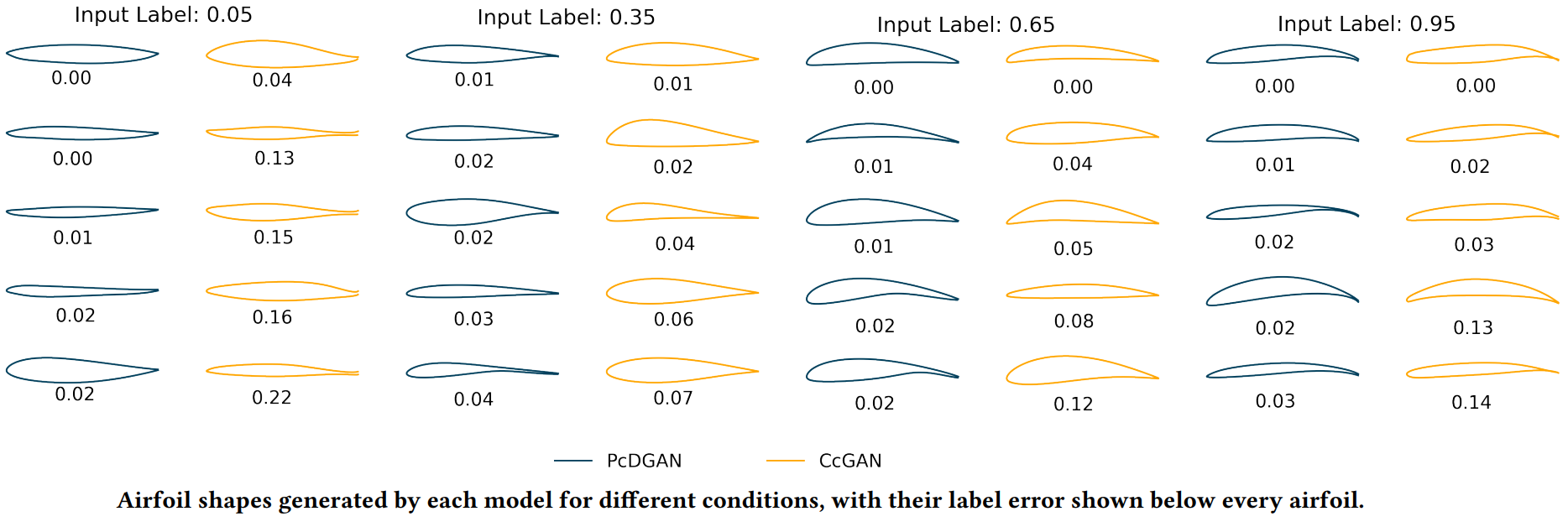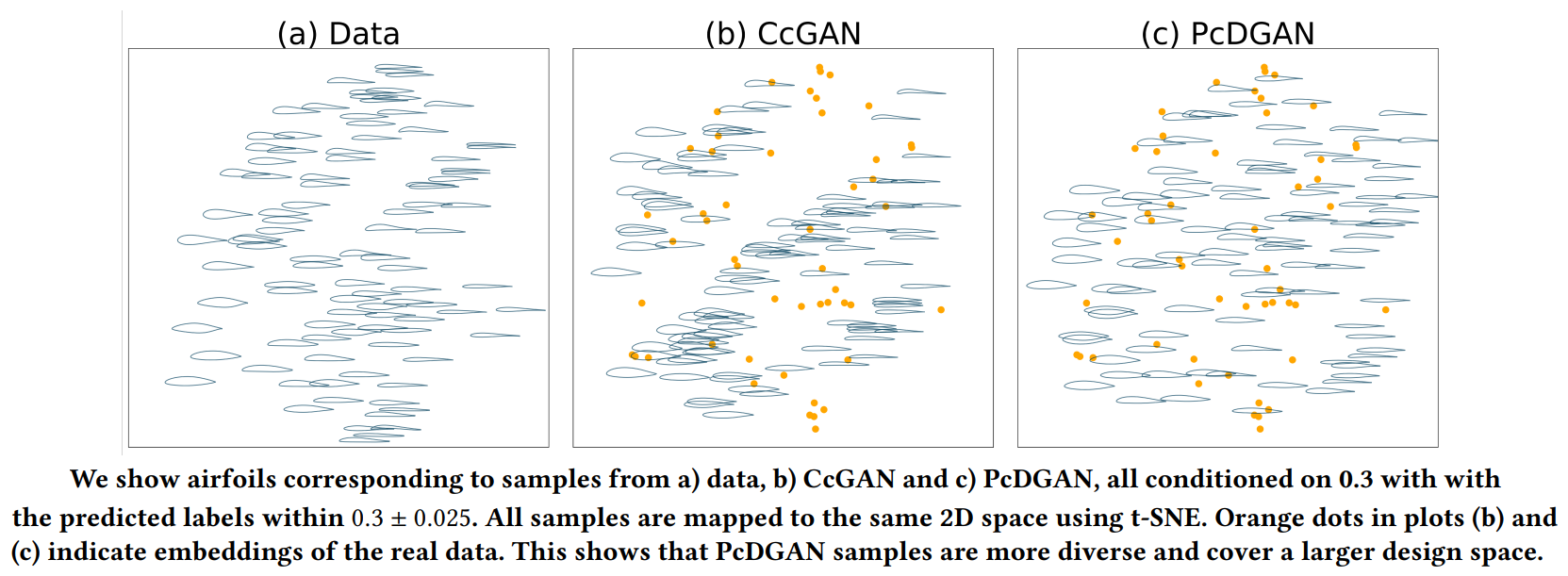PcDGAN
A Continuous Conditional Diverse Generative Adversarial Network For Inverse Design
1MIT 2Siemens Technology



A Continuous Conditional Diverse Generative Adversarial Network For Inverse Design
1MIT 2Siemens Technology
Engineering design tasks often require synthesizing new designs that meet desired performance requirements. The conventional design process, which requires iterative optimization and performance evaluation, is slow and dependent on initial designs. GANs can automate the generation of designs; however, in their simplest form, they are not capable of inverse design with requirements in mind. Past work used conditional generative adversarial networks (cGANs) to enable direct design synthesis for target performances. However, most existing cGANs are restricted to categorical conditions. In engineering design and many other domains, however, data is associated with specific performance requirements or other metrics which exist in continuous spaces, and cGANs are not typically capable of conditioning in continuous spaces very well. In our work, we introduce a novel approach for conditioning GANs in continuous spaces and outperform state-of-the-art models designed for this task specifically.

In this work, we focus our efforts on data-driven methods for design synthesis and propose an approach for guiding existing generative models to synthesize novel designs that meet specific requirements.
An effective automated inverse design tool would replace the iterative and slow conventional engineering design process with an automated design synthesizer that generates designs that are highly likely to meet specific performance requirements. However, besides meeting requirements, an ideal inverse design generator would also allow for effective design space exploration by generating samples that cover the entire design space while meeting requirements allowing designers to examine a wide variety of designs and effectively explore all possible candidates.

In this work, we not only focus on meeting continuous conditions but also proceed to develop an approach that simultaneously promotes diversity, hence better design space coverage, as well as meeting specific design requirements.
We propose our new training architecture, as displayed below, to achieve the previously stated objectives. In our approach, we introduce a DPP-based approach for the simultaneous promotion of diversity and conditioning in continuous spaces with the help of a differentiable label estimator.

We do this by introducing our performance-conditioned DPP loss. While also utilizing a modified version of the vicinal loss proposed by the state-of-the-art CcGAN model for maximizing performance and, in combination with the DPP loss, outperforming CcGAN.
As mentioned before, cGANs were designed for classification labels, and attempting to feed continuous conditions to CNN-based architectures is not effective in our experiments, so we develop our approach of using learnable embeddings shifted by a continuous label and conditional batch normalization to improve GAN perfomance in continuous spaces.

Through a real-world experiment on inverse airfoil design, we show that our approach can outperform the state of art models in all metrics. We measure the performance of models for diversity and conditioning and illustrate the PcDGAN outperforms existing methods.



Heyrani Nobari, Amin, Wei, Chen, and Faez, Ahmed. "PcDGAN".Proceedings of the 27th ACM SIGKDD Conference on Knowledge Discovery & Data Mining (2021).
@article{Heyrani_Nobari_2021,
title={PcDGAN},
ISBN={9781450383325},
url={http://dx.doi.org/10.1145/3447548.3467414},
DOI={10.1145/3447548.3467414},
journal={Proceedings of the 27th ACM SIGKDD Conference on Knowledge Discovery & Data Mining},
publisher={ACM},
author={Heyrani Nobari,
Amin and Chen,
Wei and Ahmed,
Faez},
year={2021},
month={Aug}}
The authors acknowledge the MIT SuperCloud and Lincoln Laboratory Supercomputing Center for providing HPC resources that have contributed to the research results reported within this paper.